Every child wants to feel loved, and ensuring they do is actually pretty simple.

More often than not, it’s all about the little things adults might not even think about that make the biggest difference. Feeling valued, heard, and safe plays a huge role in how kids experience love, and often, it’s the small, everyday moments that stick with them. Here are some of the more surprising things that change how kids feel loved that you might never have realised as a parent.
1. Remembering the little details they tell you

Kids don’t always expect grand gestures, but they do notice when someone remembers the small things they’ve mentioned. Whether it’s their favourite colour, a random fact about dinosaurs, or a new hobby they’ve picked up, remembering shows them that what they say matters. When a child excitedly shares something, they’re hoping you’ll care about it as much as they do. Asking follow-up questions later or bringing it up again makes them feel seen. To them, it’s proof that you’re really listening.
2. Taking their worries seriously

What seems small to an adult can feel huge to a child. Whether it’s a missing toy, a fight with a friend, or nerves about a school event, their worries are real to them. Brushing them off with a quick “you’ll be fine” can make them feel unheard. When kids feel like their emotions matter, they feel more secure. Even if their worry seems minor, acknowledging it and helping them navigate it shows that their feelings are valid. Sometimes, feeling loved is as simple as knowing someone takes you seriously.
3. Letting them help, even when it slows things down

Kids love to feel involved, whether it’s stirring cake batter, setting the table, or attempting DIY with you. Even though their “help” might not always be practical, saying yes instead of “not now” makes them feel important. Letting them take part, even in small ways, boosts their confidence and shows them they’re capable. To them, it’s not about the task; it’s about being included. Feeling useful and valued is a quiet but powerful way to feel loved.
4. Apologising when you get something wrong
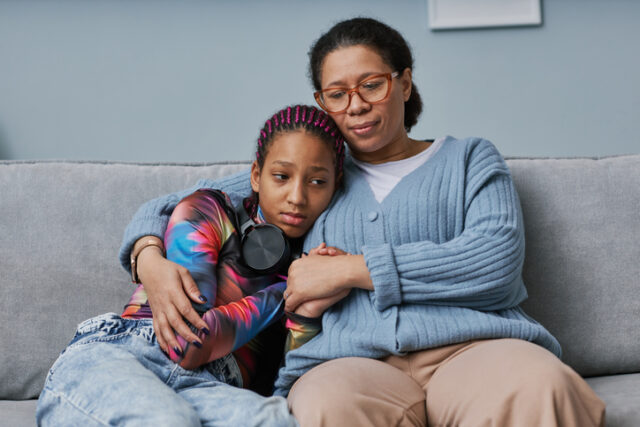
Parents and adults aren’t perfect, and kids notice when mistakes are made. Whether it’s losing your temper, misunderstanding something, or making an unfair assumption, saying sorry when you’re wrong teaches them that their feelings matter. Apologising doesn’t make an adult “less in charge”; it makes them more trustworthy. Kids respect honesty, and when they see an adult own up to mistakes, they feel safer in their relationship. It shows them that love isn’t about being perfect, it’s about being real.
5. Taking their jokes seriously (even the not-so-funny ones)

Kids love to make people laugh, and when they tell a joke, even a terrible one, they’re hoping for a reaction. A small laugh, a smile, or even playing along with the joke means more to them than you might think. When kids feel like their sense of humour is appreciated, they feel more confident and connected. Even if their joke doesn’t land, acting like it’s funny makes them feel included. Sometimes, love is just about letting them feel like the funniest person in the room.
6. Letting them overhear you saying something positive about them
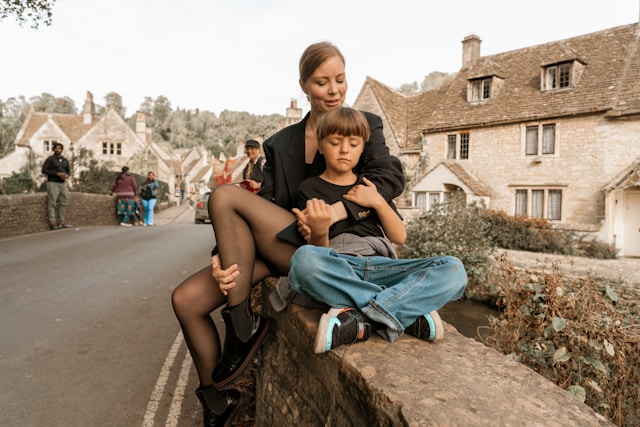
It’s one thing to tell a child they’re kind, funny, or clever, but when they hear you say it to someone else, it carries extra weight. They know you’re not just saying it to make them feel better — you actually mean it. Hearing an adult praise them in a genuine way builds their confidence and sense of self-worth. Whether it’s telling a friend how helpful they were or mentioning how proud you are, overhearing those words can make a child feel truly loved.
7. Letting them make small decisions

Kids spend a lot of their lives being told what to do, so having a say, no matter how small, makes a big difference. Choosing their outfit, picking between two meal options, or deciding on a bedtime story gives them a sense of control. Letting them make choices shows them that their opinions matter. It also helps them develop confidence in their own judgement. Sometimes, feeling loved is as simple as knowing your voice counts.
8. Sitting with them without a reason
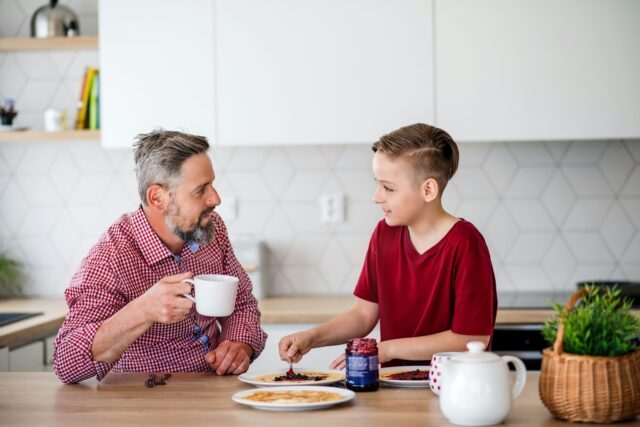
Not every interaction needs to be a big moment. Sometimes, just sitting beside them while they play, read, or watch TV means everything. It tells them that you enjoy being around them, even when nothing special is happening. Feeling loved isn’t just about what’s said, it’s about presence. Knowing someone simply wants to be near them, without needing a reason, makes a child feel safe and valued.
9. Admitting when you don’t know something

Kids ask a lot of questions, and sometimes, adults don’t have the answers. Instead of making something up or brushing it off, admitting, “I don’t know, let’s find out together,” makes them feel included. It teaches them that curiosity is a good thing and that even adults are still learning. More importantly, it shows that honesty matters more than pretending to have all the answers. Feeling loved means knowing someone is willing to figure things out with them.
10. Letting them take their time
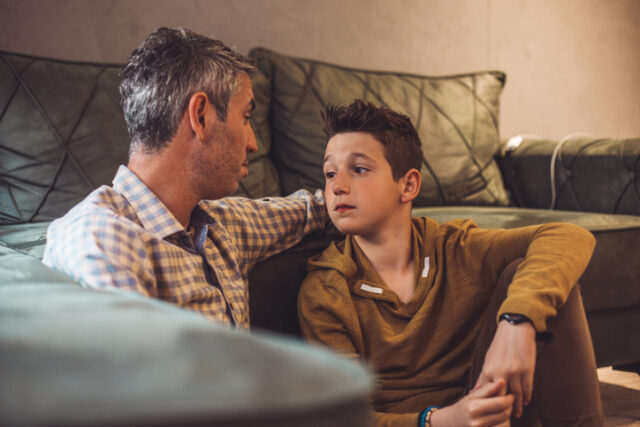
Adults are often in a rush, but kids move at their own pace. Whether it’s putting on shoes, telling a story, or finishing an activity, constantly hurrying them can make them feel like they’re an inconvenience. When adults slow down and let kids finish things in their own time, it makes them feel respected. It’s a simple but powerful way of showing that their pace matters too.
11. Laughing at their excitement instead of shutting it down
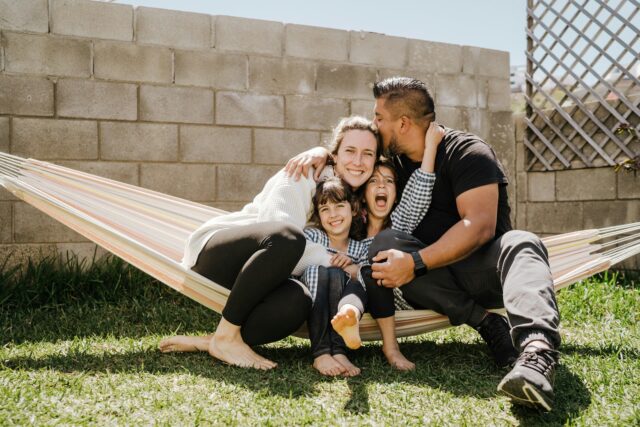 Source: Unsplash
Source: Unsplash Kids get excited over the smallest things, whether it’s spotting a ladybird, seeing a cool car, or discovering a new favourite snack. Some adults brush it off or tell them to calm down, but their excitement is part of who they are. When someone shares in their joy, even over something tiny, it makes them feel valued. Love isn’t just about being there for the big moments; it’s about celebrating the little ones too.
12. Letting them be “big” and “little” at the same time
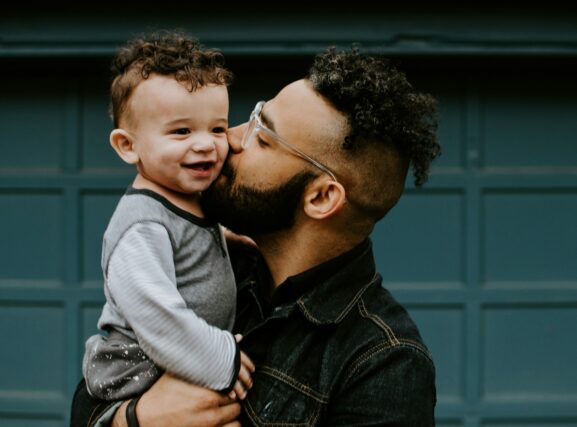 Source: Unsplash
Source: Unsplash One minute, kids want independence; the next, they want to be cuddled like they’re still tiny. Letting them switch between these needs without judgement helps them feel safe and understood. Some days, they’ll insist they can do everything alone. Other days, they’ll need reassurance and comfort. Love is letting them be both, without making them feel like they have to choose.
13. Responding when they call your name

Kids say “watch this!” or “look at me!” dozens of times a day. While it’s not always possible to stop what you’re doing every time, consistently acknowledging them even with a quick “I see you!” makes them feel valued. When a child feels ignored, they might start acting out just to get attention. Feeling loved means knowing someone actually hears them, even in the smallest moments.
14. Keeping promises, even the tiny ones

For adults, cancelling a small promise might not seem like a big deal. But to a child, it can feel like a huge disappointment. If you say you’ll play later, read a story, or go for ice cream, following through builds trust. Consistency makes kids feel safe and loved. Even if plans change, explaining why instead of just forgetting teaches them that their time and feelings matter. Small promises kept mean the world to them.




